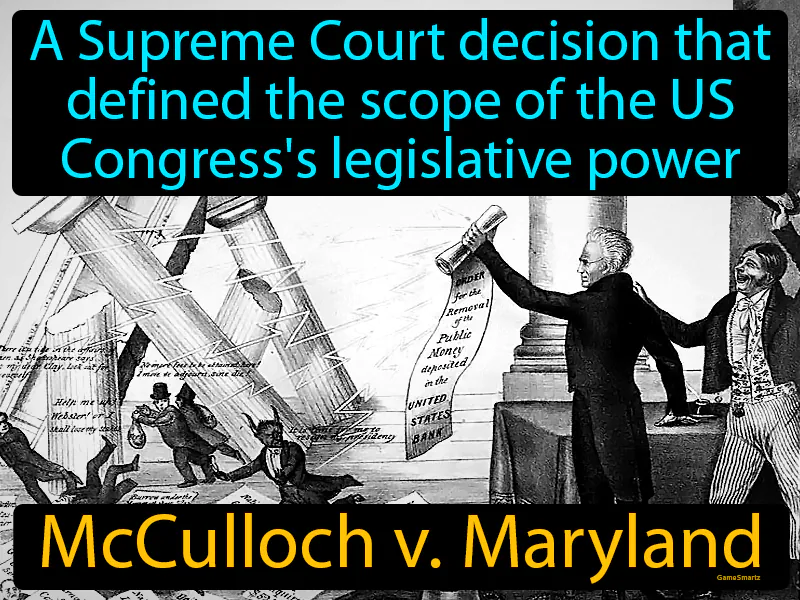McCulloch V Maryland
McCulloch V Maryland: Easy to understand
McCulloch v. Maryland (1819) was crucial because it reinforced the power of federal authority over state governments, a significant theme during The Age of Jackson. The decision established that Congress had implied powers under the Constitution, allowing it to create a national bank, which Maryland couldn't tax. This highlighted the ongoing tension between federal and state powers, an issue that still matters today. For example, debates over healthcare, education, and environmental regulations often revolve around whether states or the federal government should have control. This ruling impacts people's lives by ensuring a unified national policy in certain areas, like currency and banking, making everyday transactions more consistent and reliable across states.

Practice Version

McCulloch V Maryland: A Supreme Court decision that defined the scope of the US Congress's legislative power. McCulloch v Maryland. This 1819 case established that the federal government has implied powers beyond those explicitly listed in the Constitution and that states cannot tax federal institutions.